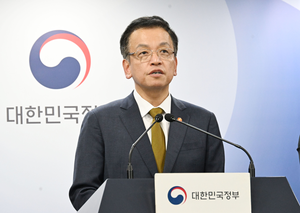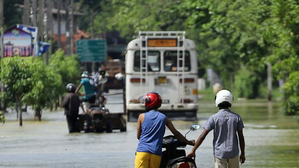UN Biodiversity Conference to reconvene in February in Rome
Montreal, Nov 28 (IANS) The UN Biodiversity Conference, suspended this month in Cali in Colombia will reconvene from February 25-27, 2025, in Rome at the headquarters of the Food and Agriculture Organization of the United Nations (FAO).
The bureau of the Conference of the Parties to the Convention on Biological Diversity on Wednesday agreed to hold resumed sessions for COP 16 and the concurrent meetings of the protocols to address agenda items left unresolved following the suspension of the meeting due to loss of quorum in the early hours of November 2.
“In the weeks to come, and during our meeting in Rome this February, I will work alongside parties to build the trust and consensus needed to achieve peace with nature, ensuring that the goals and targets of the Kunming-Montreal Global Biodiversity Framework (KMGBF) translate into tangible action. Securing adequate and predictable financing will be central to our efforts, enabling transformative change for biodiversity while ensuring benefits for communities and ecosystems alike,” said Susana Muhamad, Minister of Environment and Sustainable Development of Colombia and President of COP16.
“Strong results achieved at COP16, underpinned by a spirit of compromise and dialogue, show that multilateralism remains effective even in challenging times,” said Astrid Schomaker, Executive Secretary of the Convention on Biological Diversity.
“Today’s swift agreement to conclude our discussions in early 2025 reflects the determination to maintain momentum and ensure the successful implementation of the KMGBF.”
A major focus of the resumed session includes a new resource mobilisation strategy aimed at securing $200 billion annually by 2030 from all sources for biodiversity initiatives and reducing harmful incentives by at least $500 billion annually by 2030. The parties will also explore the potential establishment of a global financing instrument for biodiversity, designed to mobilise and distribute funding effectively.
Current funding comes from bilateral arrangements, private and philanthropic sources, and dedicated funds such as the Global Environment Facility (GEF), including its Global Biodiversity Framework Fund (GBFF) and the Kunming Biodiversity Fund (KBF).
Decisions will determine how progress toward KMGBF implementation will be reviewed at COP 17. Parties will also consider incorporating commitments from non-state actors, including youth, women, indigenous peoples, local communities, civil society, and the private sector.
Finalising the national reporting template, which includes headline indicators, was also on the agenda.
On the financial mechanism, parties are expected to endorse the GEF’s achievements, encourage further contributions to the GBFF, and provide additional guidance to the GEF in light of its upcoming replenishment negotiations.
Other agenda items include decisions on cooperation with other conventions and international organisations, CBD’s multi-year programme of work, and the adoption of final reports from COP 16, COPMOP 11 (Cartagena Protocol), and COPMOP 5 (Nagoya Protocol).
Before COP 16 was suspended due to a lack of quorum, the conference achieved groundbreaking agreements on global biodiversity protections and implementation of the Kunming-Montreal Global Biodiversity Framework.
Governments agreed to establish the pioneering ‘Cali Fund’, for industries such as pharmaceuticals, biotechnology, and agriculture – those benefiting from Digital Sequence Information (DSI) on genetic resources – to share benefits with developing countries, indigenous peoples, and local communities.
Under the guidelines, large companies and other entities commercially benefiting from DSI are expected to contribute to the fund based on a percentage of profits or revenues.
Smaller entities, academic institutions, and public research bodies that use DSI for non-commercial purposes are exempt.
The fund’s resources will largely benefit developing countries, supporting the implementation of the KMGBF and National Biodiversity Strategies and Action Plans (NBSAPs). Additionally, funds will bolster indigenous peoples’ and local communities’ activities.
–IANS
vg/svn




